The Most Exciting Scripture Your Grandkids Ever Read May Be That Which You Write!
There are many reasons we may want to learn about our ancestors. One reason, for Latter-day Saints, is to provide vicarious temple ordinances for them. But another is to be inspired and motivated by their lives and examples. To illustrate, may I share experiences of four of my own ancestors, which have enriched my life?
William Cazier and Pleasant Drake Cazier
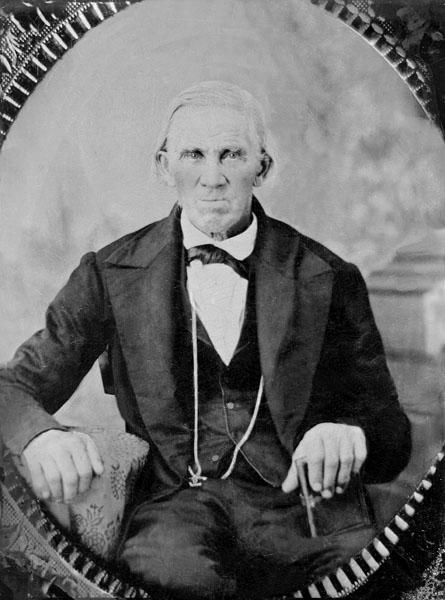
William and Pleasant were my great-great grandparents. In the summer of 1844 they were living with their family in Illinois. According to their son, David:
The Mormon elders came along and wanted to preach in my father’s house. So, he let them, but the neighbors advised him not to do so. But I think he was impressed with what they said. So, time went on till sometime in the fall of ’44. At that time my father was sick in bed, and there [were] some holy persons, three of them, and he said they stood at the foot of his bed and told him that the Mormon Church was the only true church on earth. So, in a day or so he and my mother [were] baptized. But previous to his baptism he told his vision in a sabbath meeting in a Campbellite church, thinking they would believe him. But to the contrary. They said he was crazy and wouldn’t believe a word of it. So, persecution started. And my father being somewhat in debt they pushed him and sold his property for just what they pleased. But in the meantime, he was fixing to come with the Church to the Rocky Mountains…. They also [were] in the act of putting him in jail, so he had to leave, leaving his family behind. And after fixing up business in the best they could, we followed him.
William and Pleasant and their family crossed Iowa with other Mormon exiles in covered wagons in the summer of 1846. They stopped near Council Bluffs for the winter, across the Missouri River from present-day Omaha, Nebraska. There, according to David Cazier:
My mother died in a hay shed crying out for vegetables, but there was none to be had. We had nothing but bread, bacon, beans and coffee. And there being no coffins to be had, my father and a neighbor cut one out of a solid log. There was no funeral services and no flowers. Oh, how forlorn she died a martyr for the truth! Now she was not the only one, there was scores died around Council Bluffs that winter. One of the leading causes was having no vegetables and so very cold.
William remarried and finally arrived in the Salt Lake Valley October 1, 1851, after a thousand-mile journey. Three weeks later, responding to a call from Brigham Young, they relocated some 85 miles to the south to build up the Salt Creek settlement (later renamed Nephi). There William built a simple log cabin for his family. But not long thereafter he and the other settlers had to tear down their houses to build a fort in which all could live for protection from marauding Indians. In 1855 grasshoppers ate up virtually all their crops. But eventually the community prospered. William was elected treasurer and was called as the first patriarch of the Church in Nephi. I’ll be forever grateful that he was worthy enough to receive the visitation of angelic beings in 1844, that Pleasant was prepared to make the ultimate sacrifice in 1846, and that William and his family were willing to give up all they had in Illinois rather than give up the gospel of Jesus Christ, which they knew to be true.
John Cazier
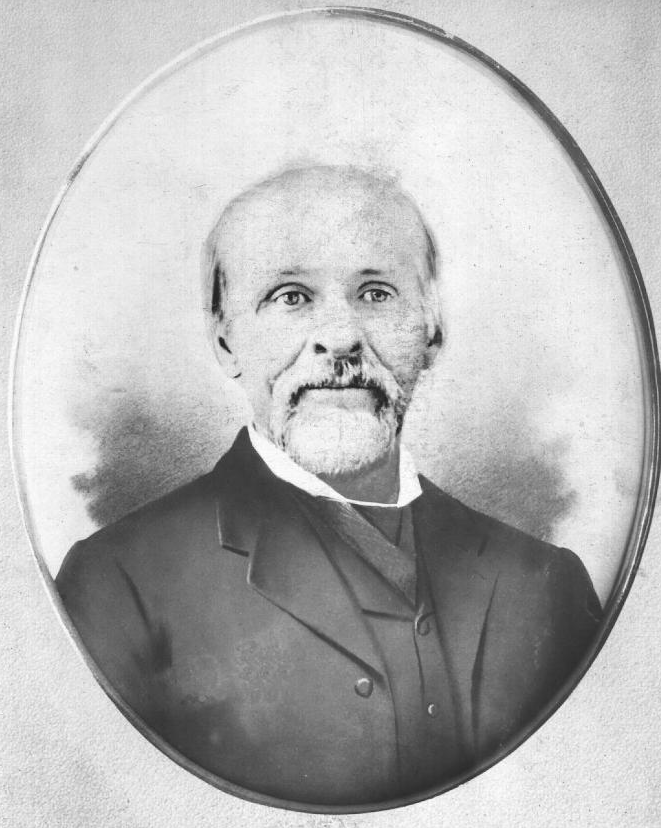
John was the son of William and Pleasant and was my great-grandfather. He didn’t join The Church of Jesus Christ of Latter-day Saints at the same time as his parents. But he was a staunch defender of it from the beginning. Once a mob of 50 armed men threatened his friend, Andrew Love, another recent convert. Andrew’s life was reportedly saved “only by the prompt action of his friend, John Cazier, who was recognized as the best shot in the entire county” and who singlehandedly confronted the mob and “stood ready to kill the first one in the mob who fired at Andrew Love.”
During the family’s journey to the west, John and his brother James were among the nearly 500 men conscripted to form the Mormon Battalion, to fight in the war against Mexico. Despite having a wife and young daughter, John accepted the call. They left on what for most of the group would be a 2000-mile march, the longest in US military history. They reached the Rio Grande River on November 10, 1846. But John and James, along with 54 others, were physically unfit to continue. The commander sent this sick detachment with one supply wagon and one team back to Santa Fe. From there they would march an additional 300 miles to Pueblo, Colorado, for the winter. But due to an error, the wagon carried only 5 days of supplies rather than the intended 26 days’ worth. According to B. H. Roberts:
After much suffering from the hardships of the journey — weak teams, scant supplies of food, ill-clad, general sickness among the men, the fall of December snows in the mountain ranges north of Santa Fe, excessive cold and several deaths occurring, this detachment finally arrived at Pueblo between the 20th and 24th of December in a most pitiable condition; but they were warmly received by members of the battalion already quartered there.
Mustered out of the Mormon Battalion the following spring, John and others from the sick detachment at Pueblo continued on to the Salt Lake Valley. They arrived July 29th, just five days after Brigham Young. John evidently didn’t stay long, being eager to rejoin his family back in Iowa. When he finally reached the Missouri River, he had to cross it, but had no money for the ferry. So, he swam across the mile-wide river on his blind horse!
John and his family eventually made it to Utah and joined his parents in the Salt Creek (Nephi) settlement. He lived a hard life as a farmer and freighter. He was part of a group called on in 1857 to resist Johnston’s Army, which President James Buchanan had sent out to quell a supposed “Mormon rebellion.”
After the army eventually entered Salt Lake City peacefully, John actively urged some of the soldiers to desert. For that he was arrested. While awaiting trial, John once again had an opportunity to show his heroism. According to Brigham Young’s Journal History:
John Cazier stated that one evening … he was sitting in Bullock’s Inn (Provo). There were also about a dozen gentiles, officers and wagon masters in the room. Judge Sinclair came in quite drunk, damning and abusing the Mormons and swearing that they were going to hang all the bishops and leading men of the territory. Judge Sinclair said the bishops had spies all over the country, finding out everything they could. Some were dressed in long coats, some in blue jackets, some with tall hats, and some with coarse boots, at the same time pointing to John Cazier’s boots. He asked John if he was a Mormon. John said he was and was not ashamed to own it in any crowd, (that he had) just as good a right there as he had and did not wish to be abused. The judge said, “Damn you, do you know who I am, I am a U.S. judge. Damn you!”
Then one of the company jumped up and swore he wanted to kill a damned Mormon. Another jumped up and drew his pistol and swore he would back him. Marshal Dotson stepped in and told them he would have no fuss, which put a stop to their row.
I am grateful for John Cazier’s willingness to stand up for the right even in the face of danger. And I am doubly grateful that someone made a written record of it so that I would know about it.
Samuel Whitney Richards

Samuel was another of my great-great grandfathers, on my mother’s side. He was the son of Phinehas Richards, a first cousin of Brigham Young, who introduced Phinehas to the gospel. Fourteen-year-old Samuel also soon became a member of The Church of Jesus Christ of Latter-day Saints. At age fifteen he accepted a mission call to New York, Connecticut, and Vermont. Traveling without purse or scrip, Samuel made a deep impression on those who listened to him, as he eloquently and fervently shared his own religious convictions.
In 1843 Joseph Smith called nineteen-year-old Samuel to be part of a group of twenty-five young men tasked with traveling to the Rocky Mountains and California to look for a place to which the Church could move to escape persecution. Joseph Smith told the group he “wanted young men of faith who could go upon the mountains and talk with God face to face as Moses did on Mount Sinai and learn from Him where His people should make a home.”
Samuel evidently felt overwhelmed by the assignment. Feeling unworthy, he was on the verge of resigning from the group. He decided, however, to first go to the Lord in prayer. At home on his knees he asked the Lord for some manifestation that would show him what he should do.
He said: “My prayer was answered. In vision, I performed the entire journey successfully and in connection with it, I saw the future of my entire life, and also down to the end of time, when all things were restored to their Eden grandeur, purity and excellence, for the use of man.” He also saw the land “filled with cities, towns, and villages, and people happy, living under the administration of divine Providence, resurrected beings enjoying immortality and eternal lives.”
The vision took four hours. Samuel said that in it he saw and learned more than he would hope to learn if he lived a thousand years. In the end, Samuel did not complete this assignment. Joseph and Hyrum Smith were murdered in Carthage Jail prior to the group’s departure and plans necessarily changed.
Samuel had other remarkable spiritual experiences. As a member of the First Quorum of Seventy in Nauvoo, he recorded the following experience from a meeting of the quorum on February 22, 1846:
Dressing ourselves in the order of the priesthood, we called upon the Lord, his spirit attended us, and the visions of heaven were open to our view. I was, as it were, lost to myself, and beheld the earth reel to and fro and was moved out of its place. Men fell to the earth and their life departed from them, and great was the scene of destruction upon all the face of the land, and at the close thereof, there appeared a great company as it were of Saints coming from the west as I stood with my back to the north, and they were passing to the east, and the scripture was fulfilled which saith, “Come see the desolation which the Lord hath made in the earth.” And the company of the Saints who had been hid as it were from the earth, walked in the light, for the glory of the Lord was round about them, while darkness was upon the face of the earth. And I beheld other things which were glorious while the power of God rested down upon me. Others also beheld angels and the glory of God.
Then, on March 18, 1846, he recorded the following:
Evening spent with the Quorum in the [Nauvoo] temple, myself presiding, at which time it was testified that there had not been so great faith manifested at any time before, and was testified of by many without that the temple was filled with an exceeding bright light. The gift of tongues, etc., prophecy was much enjoyed.
Samuel experienced his share of tragedy in his early days in the Church. His brother George was killed at the Haun’s Mill Massacre. Another brother, Joseph, died while serving with the Mormon Battalion. His first wife, Mary Haskin Parker, died in childbirth when she was only 36. Their newborn son died the same day. But Samuel maintained his faith and never faltered in his service in the Church and in the community.
Samuel spent a total of sixteen years away from home as a missionary. He presided over the British Mission and later the Eastern States Mission. While in England he edited the Church’s magazine, The Millennial Star. He also directed the work of the Perpetual Emigrating Fund, assisting thousands of English converts to make it to Utah.
Samuel W. Richards played a significant roll in the construction of both the Nauvoo and Salt Lake City temples. He served in the Utah Territorial Legislature and on the Salt Lake City Council. Samuel was on the Board of Regents of the University of Deseret. And he found time to keep a journal which formed the basis for a book on his life entitled Man of Integrity: The Life History of Samuel Whitney Richards, written by my uncle, Arthur D. Slater. Had Samuel not seen the importance of keeping a personal history, we who are his descendants would know much less about him today.
None of his journal entries is more fascinating to me than his record of his visit with Oliver Cowdery and his wife in January 1849. Samuel was at the time renting a farm in what is now Fremont County, Iowa, about 60 miles south of Winter Quarters. During a severe snowstorm, two travelers knocked at their door, seeking refuge from the storm. They turned out to be Oliver Cowdery and his wife, who were en route to Richmond, Missouri, to visit Mrs. Cowdery’s brother, David Whitmer.
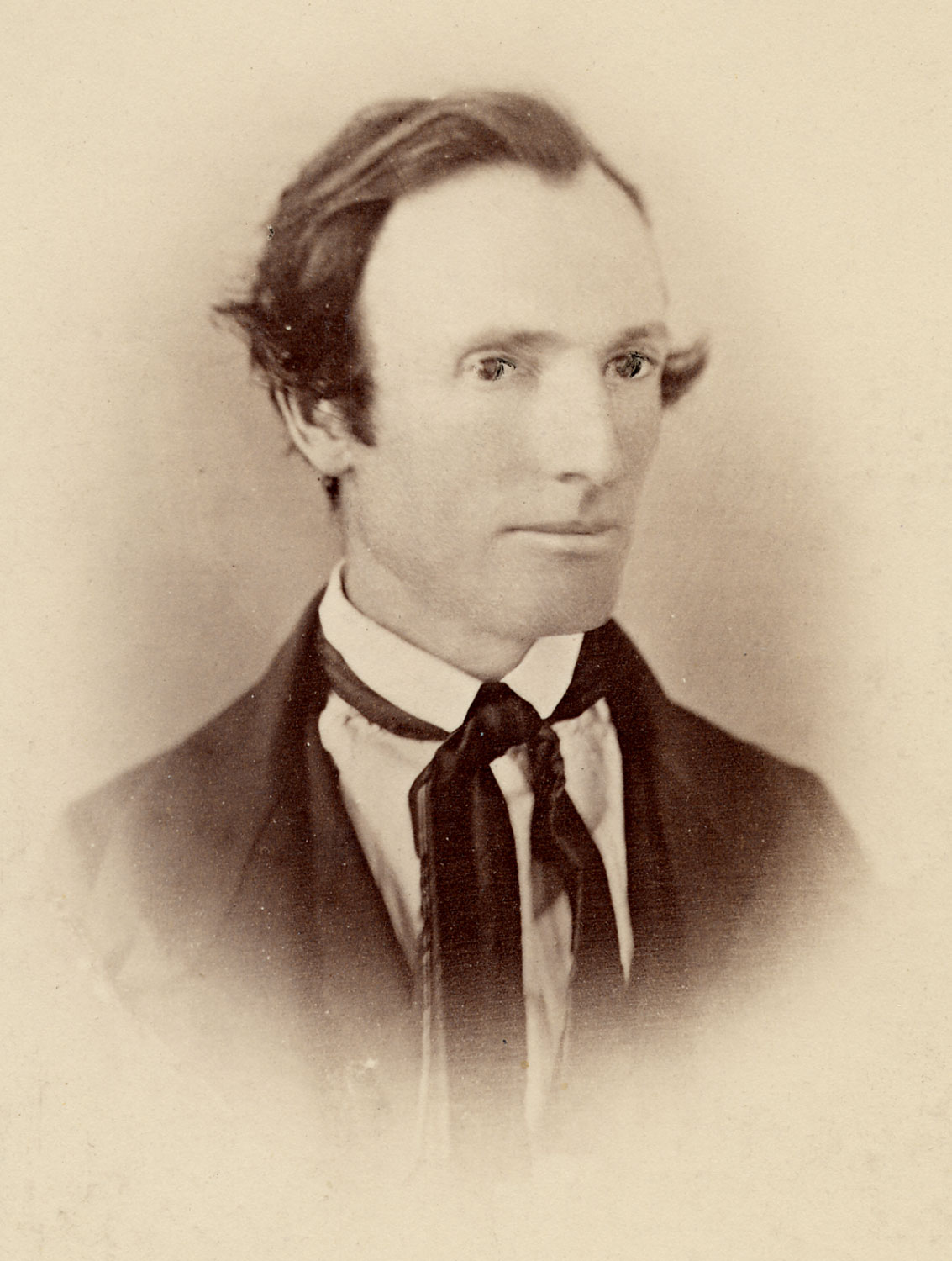
Cowdery and Whitmer were two of the Three Witnesses to the Book of Mormon. Oliver Cowdery had participated with Joseph Smith in many of the founding events of the restoration of the gospel. Oliver had done most of the writing of the Book of Mormon, as Joseph Smith dictated it. He was present with Joseph when John the Baptist restored the Aaronic Priesthood. He was there when Peter, James, and John conferred the Melchizedek Priesthood on them.
Due to pride and other personal weaknesses, Oliver subsequently left the Church. But he never denied the reality of the events in which he had participated. Following Joseph Smith’s death, after a ten-year absence from the Church, Oliver was rebaptized. The Cowderys were planning to travel west with the Saints to the Salt Lake Valley in the spring of 1849. However, Oliver’s health declined and he never made it, dying in 1850. What he shared with the Richards in January 1849 is considered his final testimony. Samuel wrote:
The storm was so severe as to stop travel, and they spent over two weeks with us at our home. This was not lost time to either of us. He soon learned of my past life, and I of his. Our time was almost entirely spent in getting acquainted with each other’s past history. I was surprised at the bright recollection he seemed to have of his early experiences with the Prophet Joseph, especially in relation to the work of translating the Book of Mormon.
He represented Joseph as sitting at a table with the plates before him, translating them by means of the Urim and Thummin, while he (Oliver) sat beside him writing every word as Joseph spoke them to him. This was done by holding the ‘translators’ over the hieroglyphics, the translation appearing distinctly on the instrument, which had been touched by the finger of God and dedicated and consecrated for the express purpose of translating languages. Every word was distinctly visible, even to every letter; and if Oliver omitted a word or failed to spell a word correctly, the translation remained on the ‘interpreter’ until it was copied correctly.
This had been a great mystery to Oliver, how Joseph, being comparatively ignorant, could thus correct him, even in spelling, without seeing the word written; and he (Oliver) did not rest satisfied until he himself obtained the gift to translate also.
To satisfy Oliver, Joseph went with him before the Lord in prayer, and the Lord bestowed on Oliver the gift by which he was enabled to translate; and thus he learned how it was that Joseph could correct him even to the spelling of words. After this experience, Oliver was quite satisfied to write what was given to him and make corrections whenever necessary. The entire record known as the Book of Mormon was thus brought forth to the world, not by the learning of men, but by the gift and power of God, and it is true.
Samuel likely heard things from Oliver that no other person had heard. At least no one else had recorded them. He reported that the time spent with Oliver Cowdery, whom he had never met before, and learning of “his experiences in connection with the Prophet Joseph at a time when the prophet was in constant communication with God and angels, tended to make of it a most divine and sacred interview to me.”
Later in his life, Samuel recorded additional recollections of Oliver’s visit:
To hear him describe in his pleasant but earnest manner the personality of those heavenly messengers with whom he and the Prophet had so freely conversed was enchanting to my soul. Their heavenly appearance, clothed in robes of purity; the influence of their presence so lovely and serene; their eyes that gazed upon them were all so beautifully related as to almost make one feel that they were then present; and as I placed my hands upon his head where these angels had placed theirs, a divine influence filled the soul to that degree that one could truly feel to be in the presence of something that was more than earthly; and from that day to this — now almost 50 years ago — the interest of those glorious truths upon the mind has never been lost but as a beacon light ever guiding to the home of their glory for a like inheritance.
What a loss it would have been to Samuel’s descendants and to Church history generally, had he not taken the time to make a written record of his experiences.
James Alma Slater
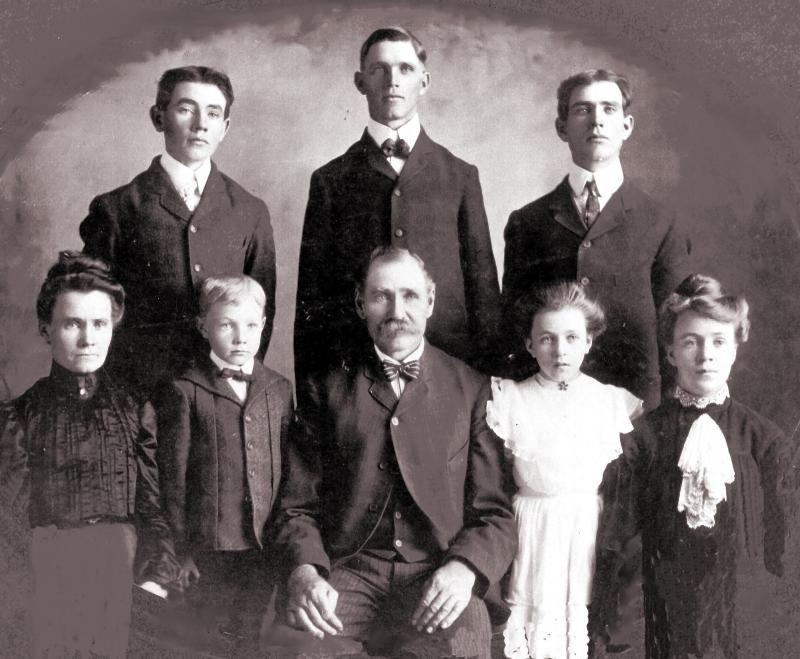
James was another great-grandfather on my mother’s side. He was the youngest of twelve children. Though his father was a faithful Latter-day Saint, James’s mother and eleven older brothers and sisters all left the Church. They attempted to persuade James to follow them. But he had received a personal testimony and his mother and siblings could not sway him. A friend, Alvin J. Hudman, related how James received that testimony:
His father taught him the principles of the Gospel. In his early manhood he had a great desire to know whether or not Joseph Smith was a Prophet of God and whether or not the Book of Mormon was correct and true. He made it a subject of prayer. He believed he would get an answer. He did get an answer, but not in the way some think he should have. I have heard him say that no Heavenly messenger appeared unto him, telling him it was true and correct, but he had that feeling deep within his bosom and was convinced to that effect.
At age 28 James received a call over the pulpit at the October 1884 general conference to serve a three-and-a-half-year mission to New Zealand. It would require leaving his wife with only a two-room house and with responsibility to care for their three young children and their small farm by herself. But she insisted he serve.
During his mission James traveled 6,382 miles around New Zealand either on horseback or on foot. And when he finally returned home, he found the farm, under his wife’s care, was in better shape than when he left it.
While in New Zealand James had a remarkable experience, which fortunately he recorded. On one occasion he was traveling by horseback with his companion to hold a meeting in a small community. En route a voice came to him telling him they should turn around and go back to their last town. He hesitated. Then the voice came again. He told his companion, and they turned around and started back. Shortly thereafter a volcano erupted nearby, and ash began to fall from the sky. They took shelter in a barn, where they stayed several hours. When they went out to continue their journey, they found between twelve and eighteen inches of ash on the ground. They later found out that the town they had been warned to flee from had been covered by lava. It destroyed most of the town and took several lives.
Presumably, the volcano was Mount Tarawera, which erupted on 10 June 1886, spewing ash and debris over 6,200 square miles, destroying the famed Pink and White Terraces and three villages, including Te Wairoa, and claiming the lives of perhaps 120 people. Had the missionaries not listened to the voice, there could easily have been two more casualties.

So, what’s the point?
Why relate all these experiences of my ancestors? It is simply this: If they or someone close to them hadn’t written them down, I’d know nothing about them. They may not be as interesting to someone not related, but to me these stories are priceless.
It’s worth asking ourselves what our own grandchildren and great-grandchildren will know about us. Have we had experiences that would inspire, motivate, or strengthen them? Do we have a testimony of the gospel that they deserve to hear? Have we put such information in writing and stored it someplace where future generations can find it?
The Christian world generally has insisted that “scripture” is confined to the Old and New Testaments. Latter-day Saints acknowledge three additional volumes, the Book of Mormon, the Doctrine and Covenants, and the Pearl of Great Price. These are the four “Standard Works” of the Church, which have been voted on by the Church as being doctrinally binding on all members.
But the Lord has indicated there is a broader definition of “scripture.” In D&C 68:3-4 He states that scripture is whatever an inspired representative of the Lord speaks when “moved upon by the Holy Ghost.” He adds: “And whatsoever they shall speak when moved upon by the Holy Ghost shall be scripture, shall be the will of the Lord, shall be the mind of the Lord, shall be the word of the Lord, shall be the voice of the Lord, and the power of God unto salvation.”
In that sense, written records we keep of spiritual experiences become a kind of “scripture” for our posterity. Most likely when the Book of Mormon prophet Nephi began keeping his record, he saw it more as a way to pass his testimony of divine intervention down to posterity than as a future “Standard Work.”
Interestingly, scholars categorize Old Testament prophets as Major Prophets or Minor Prophets. The difference is not in the quality or subject matter of their writings. It is simply based on how much they wrote. Those designated as “major prophets,” such as Isaiah, Jeremiah, and Ezekiel wrote a lot. “Minor prophets,” such Hosea, Joel, and Malachi, wrote comparatively little. It may be worth asking whether our posterity will consider us to be “major” or “minor” by that standard.
As important as the writings of Biblical prophets are, they may not be as interesting to some of our posterity as the writings we personally leave for them—especially if they never read the Bible. Stories of their own ancestors of two or three generations earlier may be more understandable and compelling than stories from two or three thousand years earlier, written in often difficult language, and dealing with subjects sometimes foreign to modern readers.
Large Plates and Small Plates
It is unlikely that our posterity will consider the recorded minutia of our daily lives to be particularly fascinating. They may not care who our boss was or how long our commute was each day. Even a fender bender we suffered on the way home may not be particularly captivating. But examples of divine intervention, details of how we developed our faith in God and in His Church, and major life lessons can be of immeasurable value.
For that reason, we may wish to take a lesson from Nephi and keep two “sets of plates.” On our “large plates” we can record when we replaced the water heater or when we had specific immunizations. We may well have need to refer to that information in the future. But we will want to have a briefer record (the “small plates”) on which we keep a record of those things of eternal value to future generations.

Where Can I Store My Personal History?
Now where can we keep this information so that it will be available to future readers? Mormon buried his plates in the ground. That may not be the best option for us. But if our record stays in a filing cabinet or on our computer, it may as well have been buried. Fortunately, at www.FamilySearch.org there is an easy way to upload family stories and photos to the “Memories” section of each ancestor’s record. We can likewise upload our own personal history and favorite photos to our own Family Tree page. This way, that information will be available to all interested readers, forever.

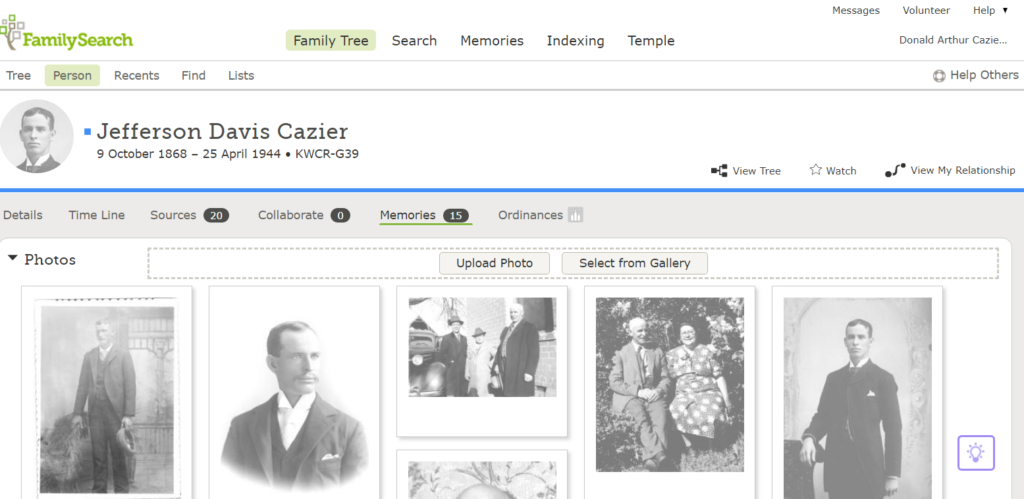
It is true that as long as we are living, material uploaded to our Family Tree page is visible only to us. So, we may wish to have some other way to share our written record while we are still alive. Dropbox and OneDrive are two good options. Blog sites are another. But I have already had the experience of having one commercial site close down after I had uploaded hundreds of photos to it. The beauty of FamilySearch and the affiliated Family Tree is that we have the Lord’s promise that His Church will never again disappear from the earth. We can likewise expect that the family history site it sponsors and on which we store our memories will be around forever.
If we are grateful for what ancient prophets and more recent ancestors left in writing for us, we can show our gratitude by leaving something comparable. We needn’t be trained as writers or even worry about correct grammar. But there’s no time like the present to get started.
Appendix: Statements from the scriptures and Church leaders concerning the importance of a personal history
- Exodus 34:27: And the Lord said unto Moses, Write thou these words.
- Psalm 102:18: This shall be written for the generation to come: and the people which shall be created shall praise the Lord.
- Jeremiah 30:2: Thus speaketh the Lord God of Israel, saying, Write thee all the words that I have spoken unto thee in a book.
- Revelation 1:19: Write the things which thou hast seen, and the things which are, and the things which shall be hereafter.
- 2 Nephi 25:23: For we labor diligently to write, to persuade our children, and also our brethren, to believe in Christ.
- 2 Nephi 29:11: For I command all men, both in the east and in the west, and in the north, and in the south, and in the islands of the sea, that they shall write the words which I speak unto them.
- Mosiah 17:4: He [Alma] being concealed for many days did write all the words which Abinadi had spoken.
- Mosiah 26:33: And it came to pass when Alma had heard these words he wrote them down that he might have them.
- 3 Ne 23:9-13: How be it that ye have not written this thing …? (Jesus chastises the Nephites for not having written the fulfillment of Samuel’s prophecy (not the prophecy itself)—the day after its fulfillment! See Helaman 14:25.)
- D&C 76:113: This is the end of the vision which we saw, which we were commanded to write while we were yet in the Spirit.
- Joseph Smith reportedly expressed regret that they had not recorded the date of the restoration of the Melchizedek Priesthood, as they could not testify of that event with the same power as they could have if they had preserved that detail.
- President Kimball once said the most important word in the dictionary may be “remember.” He added, our greatest responsibility is to “remember.” The word in its various forms occurs 554 times in the scriptures, while “forget” is found 148 times. Almost always when the scriptures tell of someone forgetting, they are falling into transgression and facing calamities. When they “remember,” they are happy. Written memories help us and our posterity remember things of eternal importance.
President Wilford Woodruff
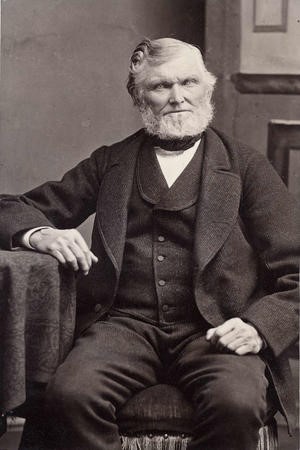
There is one subject I wish to speak upon and that is the keeping of a journal with respect to the dealings of God with us. … When the Prophet Joseph organized the Quorum of the Twelve, he counseled them to keep a history of their lives and gave his reasons why they should do so. I have had this spirit and calling upon me since I first entered this church. I made a record from the first sermon I heard, and from that day until now I have kept a daily journal. Whenever I heard Joseph Smith preach, teach, or prophesy, I always felt it my duty to write it; I felt uneasy and could not eat, drink, or sleep until I did write. (in Matthias F. Cowley, Wilford Woodruff: History of His Life and Labors [1964], 476–77.)
President Spencer W. Kimball

“Your journal is your autobiography, so it should be kept carefully. You are unique, and there may be incidents in your experience that are more noble and praiseworthy in their way than those recorded in any other life. There may be a flash of illumination here and a story of faithfulness there. … Your story should be written now while it is fresh and while the true details are available. … What could you do better for your children and your children’s children than to record the story of your life, your triumphs over adversity, your recovery after a fall, your progress when all seemed black, your rejoicing when you had finally achieved? Some of what you write may be humdrum dates and places, but there will also be rich passages that will be quoted by your posterity. … Get a notebook, a journal that will last through all time, and maybe the angels may quote from it for eternity. Begin today and write in it your going and comings, your deepest thoughts, your achievements, and your failures, your associations and your triumphs, your impressions and your testimonies. Remember, the Savior chastised those who failed to record important events. … This is what the Lord has commanded and those who keep a personal journal are more likely to keep the Lord in remembrance their daily lives.” (New Era, Oct. 1975.)
I urge all the people of this church to give serious attention to their family histories, to encourage their parents and grandparents to write their journals, and let no family go into eternity without having left their memoirs for their children, their grandchildren, and their posterity. This is a duty and a responsibility. … Those who keep a book of remembrance are more likely to keep the Lord in remembrance in their daily lives. Journals are a way of counting our blessings and of leaving an inventory of these blessings for our posterity. (General Conference. April 1978.)
People often use the excuse that their lives are uneventful and nobody would be interested in what they have done. But I promise you that if you will keep your journals and records, they will indeed be a source of great inspiration to your families, to your children, your grandchildren, and others, on through the generations. … Each of us is important to those who are near and dear to us – and as our posterity read of our life’s experiences, they, too, will come to know and love us. And in that glorious day when our families are together in the eternities, we will already be acquainted. (President Kimball Speaks Out on Personal Journals, Ensign, Dec. 1980.)
President Thomas S. Monson
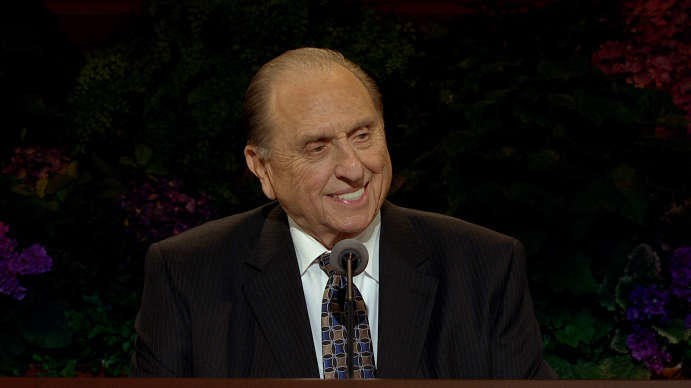
“I would like to share with you just a tiny sampling of the experiences I have had wherein prayers were heard and answered and which, in retrospect, brought blessings into my life as well as the lives of others. My daily journal, kept over all these years, has helped provide some specifics which I most likely would not otherwise be able to recount.” (General Conference, Oct. 2012.)
President Henry B. Eyring
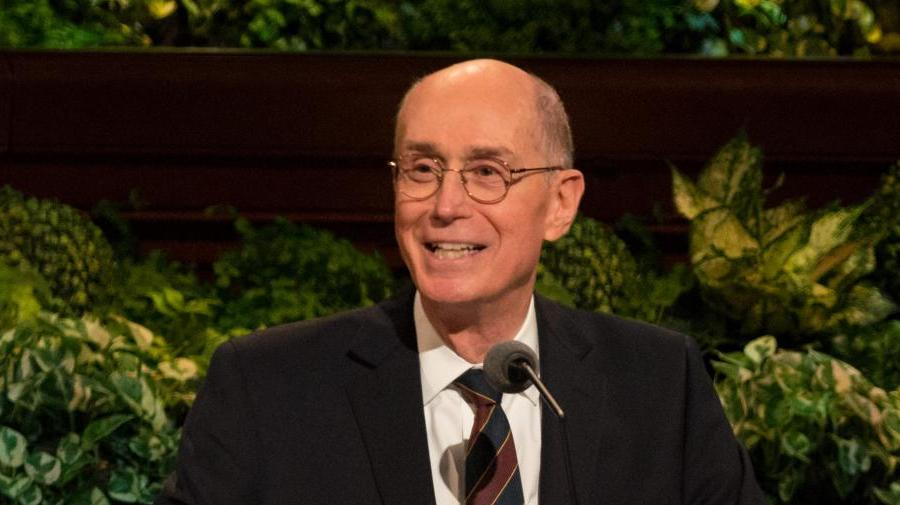
When our children were very small, I started to write down a few things about what happened every day. … I wrote down a few lines every day for years. I never missed a day no matter how tired I was or how early I would have to start the next day. Before I would write, I would ponder this question: ‘Have I seen the hand of God reaching out to touch us or our children or our family today?’ As I kept at it, something began to happen. As I would cast my mind over the day, I would see evidence of what God had done for one of us that I had not recognized in the busy moments of the day. As that happened, and it happened often, I realized that trying to remember had allowed God to show me what He had done.
More than gratitude began to grow in my heart. Testimony grew. I became ever more certain that our Heavenly Father hears and answers prayers. I felt more gratitude for the softening and refining that come because of the Atonement of the Savior, Jesus Christ. And I grew more confident that the Holy Ghost can bring all things to our remembrance—even things we did not notice or pay attention to when they happened.
My point is to urge you to find ways to recognize and remember God’s kindness. It will build our testimonies. You may not keep a journal. You may not share whatever record you keep with those you love and serve. But you and they will be blessed as you remember what the Lord has done. You remember that song we sometimes sing: “Count your many blessings; name them one by one, And it will surprise you what the Lord has done. (General Conference, Oct. 2007.)
Elder John A. Widtsoe
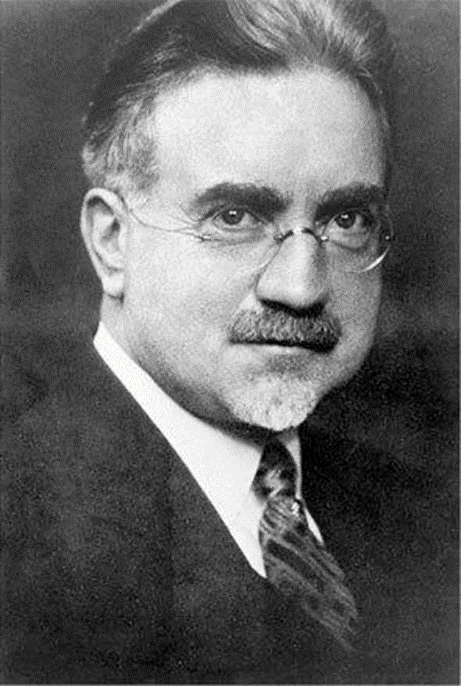
As I view it, in every family a record should be kept. … That record should be the first stone, if you choose, in the family altar. It should be a book known and used in the family circle; and when the child reaches maturity and goes out to make another household, one of the first things that the young couple should take along should be the records of their families, to be extended by them as life goes on. … Each one of us carries, individually, the responsibility of record keeping, and we should assume it. (Utah Genealogical and Historical Magazine, July 1920.)
Elder Richard G. Scott

Write down in a secure place the important things you learn from the Spirit. You will find that as you write down precious impressions, often more will come. Also, the knowledge you gain will be available throughout your life. (Richard G. Scott, June 2002 Ensign from January 23, 2001 BYU Devotional.)
Inspiration carefully recorded shows God that His communications are sacred to us. Recording will also enhance our ability to recall revelation. Such recording of direction of the Spirit should be protected from loss or intrusion by others. (Richard G. Scott, April 2012 conference.)
Knowledge carefully recorded is knowledge available in time of need. Spiritually sensitive information should be kept in a sacred place that communicates to the Lord how you treasure it. This practice enhances the likelihood of receiving further light. (1993 October General Conference..)
Elder John H. Groberg
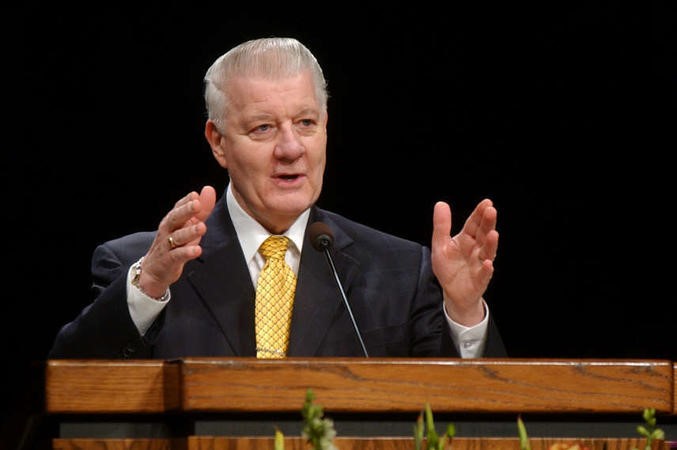
Why is the writing of personal and family histories so important? There are many reasons. I will focus on just a few. … By writing personal and family histories and doing the research required thereby, we inevitably have our hearts turned to our fathers as well as to our children. … Also, by writing personal and family histories, we are helped immeasurably in gaining a true, eternal perspective of life. Writing our histories with the proper blend of fact and feeling (and so often, feelings in spiritual things are the real facts) gives us a deep spiritual insight into the meaning and purpose of our lives. … Writing our histories will certainly help us keep our eyes on the most important of all goals — even the goal of eternal life. … There is something eternal in the very nature of writing, as is so graphically illustrated by the scriptures themselves. In a very real sense, our properly written histories are a very important part of our family scripture and become a great source of spiritual strength to us and to our posterity. … I have a strong feeling that when this life is over, our personal and family histories and the influence they wield will be of much greater importance than we now think. (General Conference, April 1980)
Elder Dennis B. Neuenschwander

A life that is not documented is a life that within a generation or two will largely be lost to memory. What a tragedy this can be in the history of a family. Knowledge of our ancestors shapes us and instills within us values that give direction and meaning to our lives. (General Conference, April 1999)
Elder Tad R. Callister
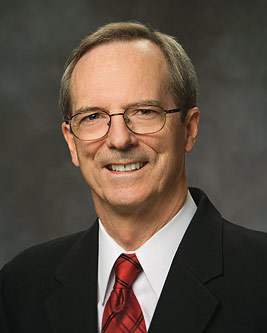
On occasion, during some training, I have invited a mother of a young teenage boy to come forward. I would say to her, “Suppose for a moment you are giving some counsel to your teenage son. At one point, he says, ‘Mom, could you stop for a moment—that is really good counsel!’ and he begins to write it down. Then he says, ‘Could you now give me some more counsel?’” Well, once the speechless mother has recovered from the shock of such a thought, I ask her how she would feel if such an experience really did occur. Responses would come like, “I don’t think you are in the world of reality,” or “I would be stunned, but so pleased—I would want to give him more counsel because I realize he is now mature enough to receive it.” And then the lesson. In many ways, we are all spiritual teenagers. When the Lord gives us counsel, what is our response? Perhaps some of us roll our eyes and say, “Not that again,” or turn up the music or ignore the impression or go back to sleep. Or, on the other hand, do we express appreciation for the impression, and however inconvenient the moment may be, whether in or out of bed, write it down? How do you think our Father in Heaven feels when we do so? Has He not promised, “For unto him that receiveth I will give more” (2 Nephi 28:30)?


What great stories! Thanks for sharing them with all of us.
Great stories! I find that there is something almost magical that happens when I force my hand to express my mind; lessons and miracles are revealed to me that would otherwise been ignored. Journaling is a tool for revelation, learning and discovery.